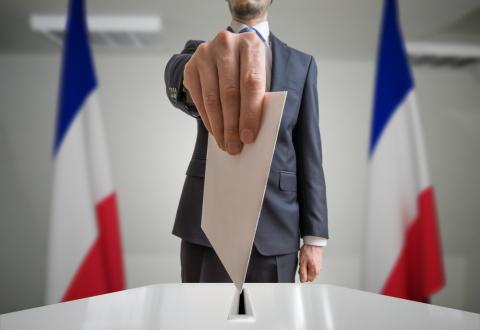When it comes to France's presidential election, the media's focus will be on Macron's landslide victory against opponent Marine Le Pen. Yet, there is another important story that will likely not get as much attention in the days following the election.
For the first time since 1969, participation dropped from the first round of voting to the second round. According to Yahoo! News, one in three voters in France either abstained from voting or sent in blank/spoiled ballots.
The report states:
"According to official results with more than 80 percent of votes counted, the abstention rate stood at 24.52 percent -- the highest since the presidential election in 1969.In addition, the interior ministry reported a record number of blank and invalid ballots, accounting for nine percent of all registered voters, compared to two percent in the first round."
That means a little over 33 percent of voters (with 80 percent of the votes counted) looked at the options given to them, Emmanuel Macron and Marine Le Pen, and didn't want to vote for either candidate.
That is a clear sign of voter fatigue, similar to the type of fatigue seen in the US presidential election. Neither candidate could bolster much enthusiasm either for their candidacy or against their opponent.
And while Le Pen was often compared to Trump because of her populist, anti-globalist tone in the campaign, perhaps appropriate parallels can also be drawn between the new French president Macron and the U.S. president. Consider the following:
The lackluster turnout and response from French voters raises the important question of governance, which may be compounded by the fact that the new president of France has never been elected to public office (though he did serve in a cabinet position). Now, Macron finds himself in a position where he must inspire and mobilize a country in which one-third of its voters didn't participate in the final round of the election.
Indeed, with the many security and financial concerns engulfing Europe right now, Mr. Macron is facing a steep climb to settle a country which is clearly not on the same page.
Sound familiar?
Photo Credit: vchal / shutterstock.com
